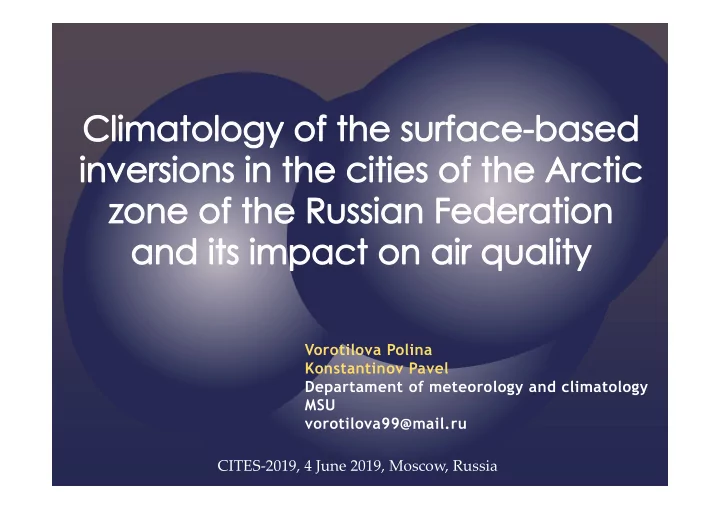

Vorotilova Polina Konstantinov Pavel Departament of meteorology and climatology MSU vorotilova99@mail.ru CITES-2019, 4 June 2019, Moscow, Russia
Motivation https://media.licdn.com • In the Arctic zone of Russian Federation more than 80% people live in the cities • Surface-based inversions are persistent feature of the Arctic climate • Surface-based inversions in the Arctic cities are poorly understood
Main issue: Make climatological analysis of the surface-based inversions in the cities of Apatity and Nadym. Objectives of the research: • to install gradient observation complexes in the cities of Apatity and Nadym • to analyze the data obtained during the observation period • to estimate the spatial heterogeneity, temperature gradient and frequency of the surface-based inversions
1. Periodicity of surface-based temperature inversions at the background and urban areas are almost no different (the difference isn’t more than 1-2%). 2. The value of the temperature gradient of the inversion at the background zone in 2 times for Nadym and 4 times for Apatity exceeds corresponding values at the urban area. 3. The average temperature gradient of the inversion in the city of Apatity is 0.67 ℃ /m for the background area and 0.19 ℃ /m for the urban area. The average temperature gradient of the inversion in the city of Nadym is 0.18 ℃ /m for the background area and 0.12 ℃ /m for the urban area.
1. Modelling of the surface-based inversions in the Arctic zone. 2. Using as a basis for the formation of environmental policy in the cities of the Arctic zone of the Russian Federation.
Recommend
More recommend